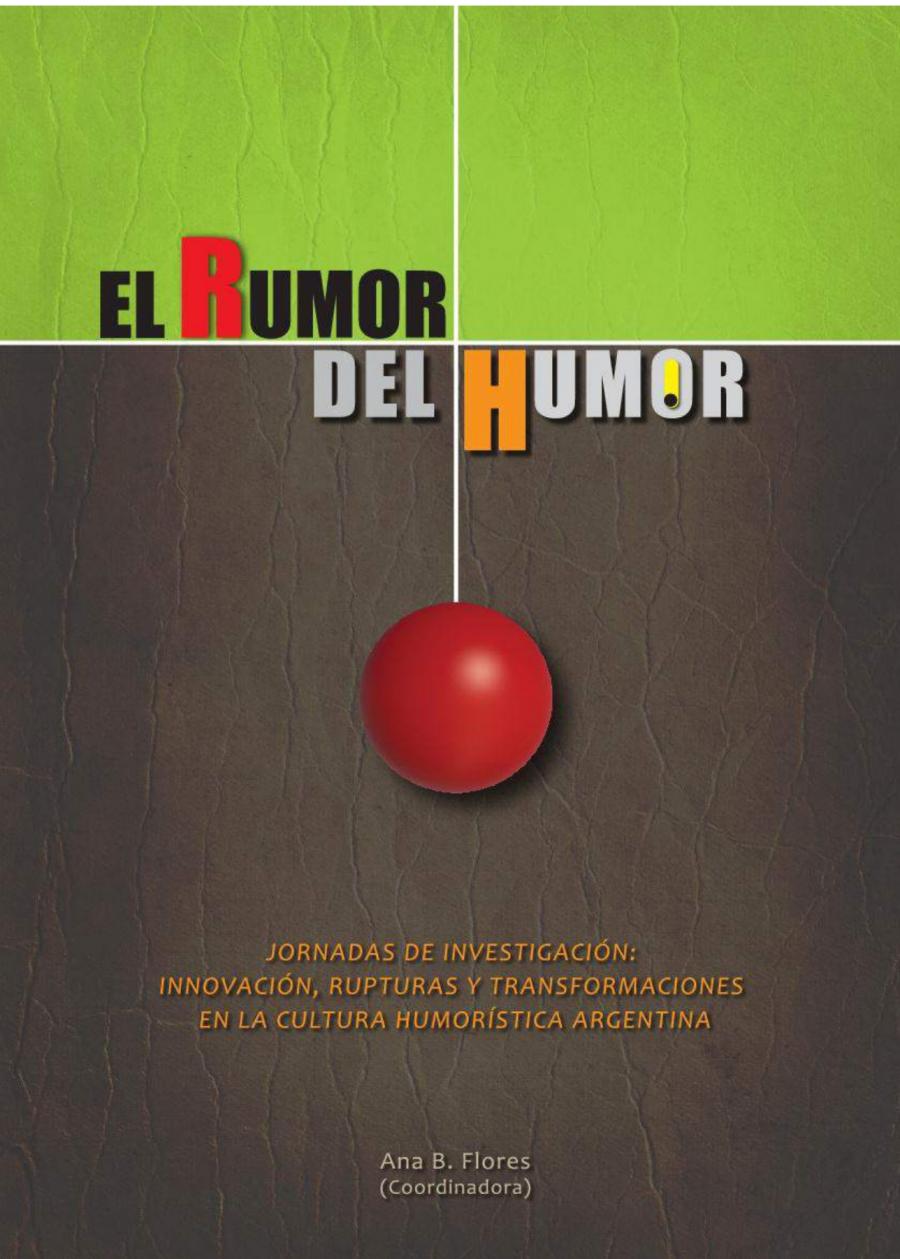The buzz of humor: Research Conference: innovation, ruptures, and transformations in Argentine humor culture
Keywords:
humor, humor in literature, graphic humor, political humor, humor in theater, humor in the press, cultural identity - humorous aspects, military dictatorship - representations in humor, popular culture, cultural innovation, parody in literature, laughter - social aspectsSynopsis
The rumor of humor, the title we chose for this book, evokes that discourse that dissipates, that enters labyrinths or holes through which it is lost, that adapts to a concreteness that transforms itself; the impossible place, says R. Robin about rumor, which is linked both to the implicit and the explicit, voices, indices of the significance of the ideological. When the rumor is humor, like the air expelled in laughter, it mixes into the social atmosphere, becoming the oxygenation of a certain community. Its oxygen and its sign. A sign of the rules that are being questioned, of the hegemonic discourses whose normality is exposed with a critical accent, of the underlying conflict, of the clichés and stereotypes to be exposed and dismantled, of the effect of normalization to be deconstructed. The link between humor and rumor is what makes explicit the implicit but doubly twisted law: what it shows is its denial, that is, the denial of the norm (through irony), its exaggeration (through satire and caricature), its devaluing imitation (through parody) to destabilize the norm.
This book contains attempts to explain and describe the humorous fluidity that, in its many manifestations, permeates culture across different eras and media. These attempts were presented at the Research Conference: Innovation, Ruptures, and Transformations in Argentine Humorous Culture, which sought to account for manifestations, innovation, ruptures, and transformations, as well as readings of tradition in Argentine and Latin American humorous culture.
Most of the articles in this book are reworkings, in terms of length, intensity, and complexity, of the majority of the presentations we shared and discussed at the conference. They bear traces of the discussions and questions that, despite the limited time available, dominated the participants' contributions. Even those that remained oral and are not included in this book. Because at no point did we lose sight of the fact that we were dealing with the politics of humor.
Chapters
-
Presentation
-
Humor by comedians
-
The construction of a joke
-
Beloved of humor
-
Humor and politics in Latin American dictatorships and post-dictatorships
-
The role of the ridiculous in the constitution of Latin American national identities Latin American
-
Memory and the possibilities of humor
-
One hundred/Fires
-
Humor and innovation
-
A media and discursive explanation of the origin and survival of postmodern comedy programs in Buenos Aires
-
Innovation policies in humorous culturestrategies of de-differentiation and instability
-
Graphic humor
-
The geography of contemporary graphic humortensions between the local and the trans-cultural
-
Journalism and humor in the weekly magazine Caras y Caretasborrowings and innovations
-
Current stage comedy
-
Re-writings of Shakespeare's Hamlet in 21st-century Argentine theaterhumor as a liminal space
-
Griegos (2007-2016), a staging of the theater of Córdoba. Tragedy, humor, and new connections with the audience.
-
A timeless sense of humor? The boundaries of childhood in two historical moments
-
Humor and literature
-
Conceptions of literature in the writing of Rodrigo Fresán. A reading of the parody in “D (U x )” Lives of Saints
-
The bizarre humor in Peinate que viene gente
-
Vicente Luy and Nicanor Parra before the law. The humorous discourse of anti-poetry in the poetics of Vicente Luy
-
Cordoba humor, Cordoba-style humor?
-
Mariana Bonadero on Radio Universidadan ironic look through humorous fiction
-
No, if you're standing there, close it.

Downloads
Published
Categories
License

This work is licensed under a Creative Commons Attribution-NonCommercial-ShareAlike 4.0 International License.


